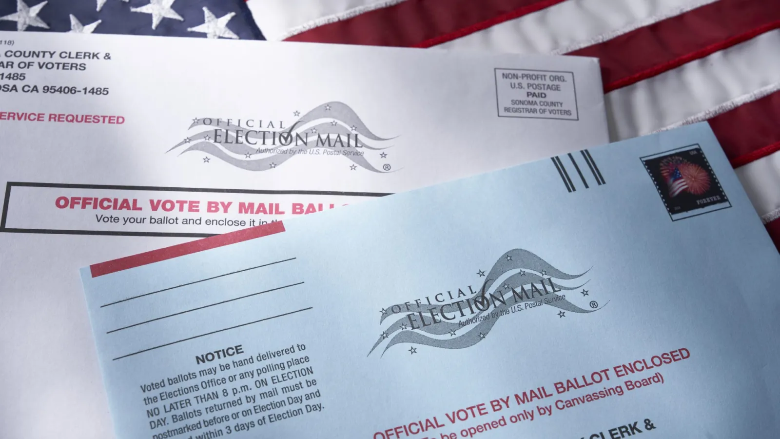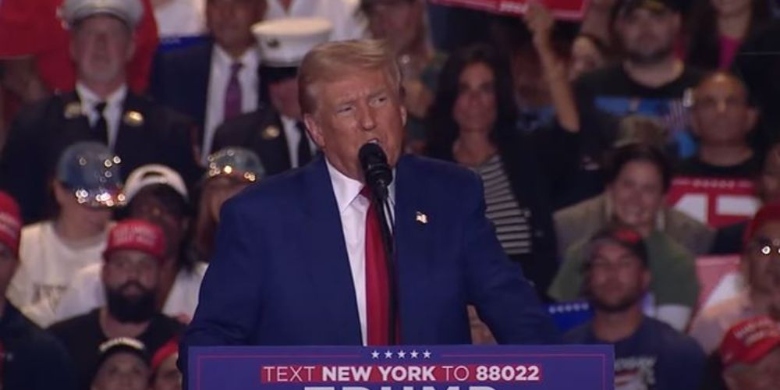In a pivotal decision issued just days before the upcoming election, the 5th U.S. Circuit Court of Appeals has ruled against state laws that allow absentee ballots to be received and counted after Election Day. This decision affects voters in three states under the 5th Circuit’s jurisdiction—Mississippi, Louisiana, and Texas—and reinforces the requirement that absentee ballots must be received by Election Day to be counted.
In recent years, several states have adjusted their voting laws to permit ballots to be counted if they were postmarked by Election Day, even if they arrived after the polls closed. However, with the new ruling, any ballot arriving after the election deadline will be excluded from the count, regardless of its postmark. The ruling is seen as a significant victory for those advocating for more restrictive election laws, with many conservative voices applauding it as a win for election integrity.
The case was brought forward by the Republican Party of Mississippi, which argued that state laws allowing post-Election Day ballot arrivals conflict with federal law. According to the court’s decision, “Federal law requires voters to take timely steps to vote by Election Day. And federal law does not permit the State of Mississippi to extend the period of voting by one day, five days, or 100 days. The State’s contrary law is preempted.” This statement highlights the court’s perspective that absentee voting laws extending deadlines effectively undermine federal regulations.
The ruling doesn’t directly affect the current election, as the court’s timing has left too narrow a window to implement changes for the ballots already submitted. The 5th Circuit’s decision sends the case back to the lower courts for further legal proceedings, but it establishes a precedent that could influence future rulings and actions in other states.
Republican National Committee Chair Michael Whatley praised the ruling, calling it “a seismic win for fair, accurate, secure, and transparent elections.” Conservatives argue that having a single cutoff date for ballot reception is essential to maintaining election security and public confidence. Allowing ballots to trickle in days after the election, they say, could increase the risk of error or manipulation, especially in highly contested states.
As of now, there is considerable variation among states regarding absentee ballot receipt deadlines. In 32 states, ballots must be received by Election Day to be counted. However, another 10 states permit ballots to be counted if they arrive within seven days after Election Day, provided they are postmarked by Election Day. The 5th Circuit’s ruling effectively shifts the balance by reinforcing the precedent that any extension of deadlines should be scrutinized closely against federal law.
For many Democrats and voting rights advocates, this ruling represents a setback to their efforts to expand absentee voting access and improve convenience for voters who may face challenges voting on Election Day. The decision has led to concerns that other states might follow the lead of the 5th Circuit, potentially making it harder for voters to cast absentee ballots in a timely fashion.
The timing of the ruling has also raised questions among some commentators, particularly given that all three judges on the 5th Circuit panel were appointed by former President Donald Trump, a Republican. Media outlets, including CNN, have pointed to these appointments in their coverage, a reminder of how judicial appointments can significantly influence decisions on voting rights and election law.
Democrats warn that restricting absentee ballot flexibility may unintentionally disenfranchise voters, particularly those facing unforeseen circumstances such as postal delays, illness, or inclement weather. They argue that laws allowing postmarked ballots to be counted after Election Day offer a necessary safety net, especially for those in rural or underserved areas who rely heavily on mail services.
The outcome of this case could set the stage for future legal battles over absentee voting laws nationwide, especially in states where voter access and ballot security are divisive issues. The ruling has also added fuel to the larger national conversation about voter rights, with each side seeing a clear imperative to protect their vision of a secure, accessible election process.
The case will now return to lower courts for further review. However, the appellate decision has established a powerful precedent that will impact similar cases in other states, potentially leading to a ripple effect in how absentee ballot deadlines are handled across the country. The close timing to Election Day means that, for now, ballots in affected states will follow existing state guidelines, but the long-term impact may extend well beyond this election cycle.
Ultimately, this ruling spotlights the contentious debate over election security versus voter access, with each side remaining firm in its stance as the nation heads into another closely watched election.



“…the 5th U.S. Circuit Court of Appeals has ruled against state laws that allow absentee ballots to be received and counted after Election Day.” This one provision, if adhered to, will prevent the favorite method to steal the election: find out the number of ballots cast by election day, subtract that number from the number of registered voters, so that you know how many already prepared absentee ballots to send in.